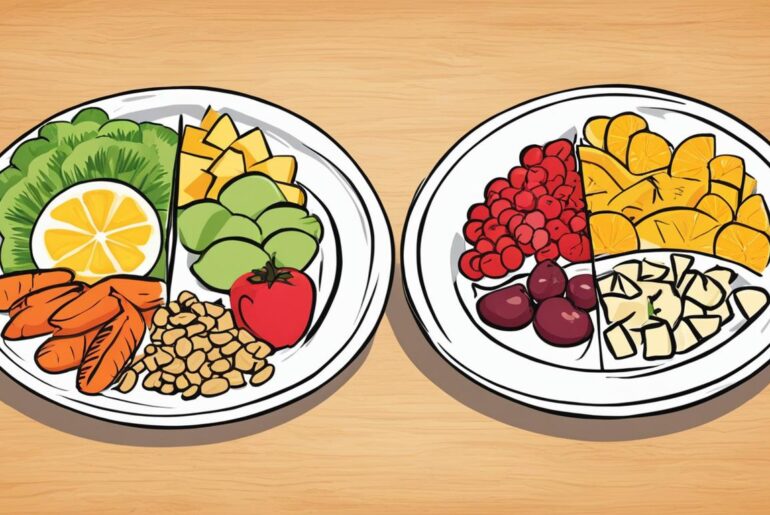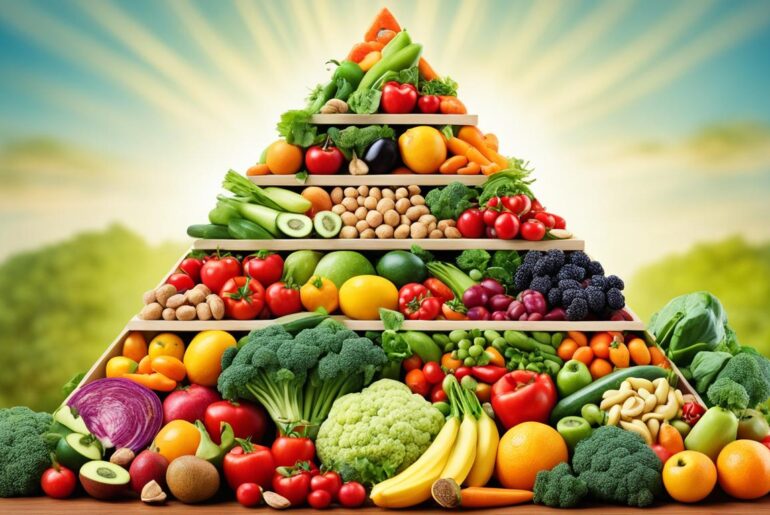When it comes to weight loss, we often overlook the power of dietary fiber. But did you know that incorporating fiber-rich foods into your diet can significantly contribute to shedding those pounds? Yes, it’s true!
Fiber is a vital nutrient that plays a crucial role in digestion and overall health. While there are different types of fiber, soluble fiber, in particular, has been found to have numerous benefits for weight loss. It not only feeds the friendly bacteria in your gut but also reduces inflammation and can help reduce your appetite.
Before you consider fiber supplements, it’s important to note that they are generally ineffective for weight loss. Instead, focus on consuming foods that are naturally high in fiber. The best sources of viscous fiber include beans, legumes, flaxseeds, asparagus, Brussels sprouts, and oats.
To fully understand the role of fiber in weight loss, its benefits, and how to increase your fiber intake effectively, continue reading. Discover how incorporating dietary fiber-rich foods can make a significant difference in your weight loss journey.
Key Takeaways:
- Dietary fiber is often overlooked in weight loss but can be highly effective.
- Soluble fiber feeds friendly gut bacteria, reduces inflammation, and may decrease appetite.
- Fiber supplements are usually ineffective for weight loss. Focus on whole plant foods.
- Include fiber-rich foods like beans, legumes, flaxseeds, asparagus, Brussels sprouts, and oats in your diet.
- Increase fiber intake gradually, and stay hydrated to prevent digestive discomfort.
The Role of Fiber in Weight Loss
Fiber plays a crucial role in weight loss and overall health. As a non-digestible carbohydrate, fiber adds bulk to your stool, aiding in digestion and promoting regularity. However, it’s important to note that not all fibers are created equal.
Soluble fiber, in particular, has numerous benefits when it comes to weight loss. It has the ability to dissolve in water, forming a gel-like substance in your digestive system. This gel slows down the absorption of nutrients and helps you feel full for longer periods, reducing the chances of overeating.
Fiber also has a positive impact on gut health. It acts as a prebiotic, providing nourishment for the friendly bacteria in your gut. These bacteria play a vital role in maintaining a healthy digestive system and can influence your body’s metabolism.
“A high-fiber diet feeds the friendly gut bacteria, reduces inflammation, and may diminish appetite.”
Studies have shown that a high-fiber diet can lead to weight loss and improve overall health markers. In one study, participants who followed a high-fiber diet lost more weight and experienced greater improvements in cholesterol levels compared to those on a low-fiber diet.
To incorporate more fiber into your diet, focus on consuming foods such as fruits, vegetables, whole grains, legumes, nuts, and seeds. These foods are rich in soluble and insoluble fibers, providing a variety of health benefits.
Remember to increase your fiber intake gradually and drink plenty of water to prevent digestive discomfort. A high-fiber meal plan combined with regular physical activity can help you achieve your weight loss goals while supporting your overall well-being.
The Benefits of Fiber for Weight Loss:
- Increased satiety and reduced appetite
- Improved gut health and digestion
- Reduced inflammation
- Promotion of healthy weight loss
Fiber-Rich Foods for Weight Loss:
Here are some examples of fiber-rich foods that can aid in weight loss:
| Food | Fiber Content per 100g |
|---|---|
| Beans (black, kidney, chickpeas) | 8-16g |
| Lentils | 7.9g |
| Avocado | 6.8g |
| Chia Seeds | 34.4g |
| Flaxseeds | 27.3g |
| Raspberries | 6.5g |
Incorporating these fiber-rich foods into your meals and snacks can help you increase your daily fiber intake and support your weight loss efforts.
Remember, when it comes to weight loss, fiber is your ally. By including fiber-rich foods in your diet and making healthy lifestyle choices, you can harness the power of fiber to achieve your weight loss goals.
The Benefits of Soluble Fiber for Weight Loss
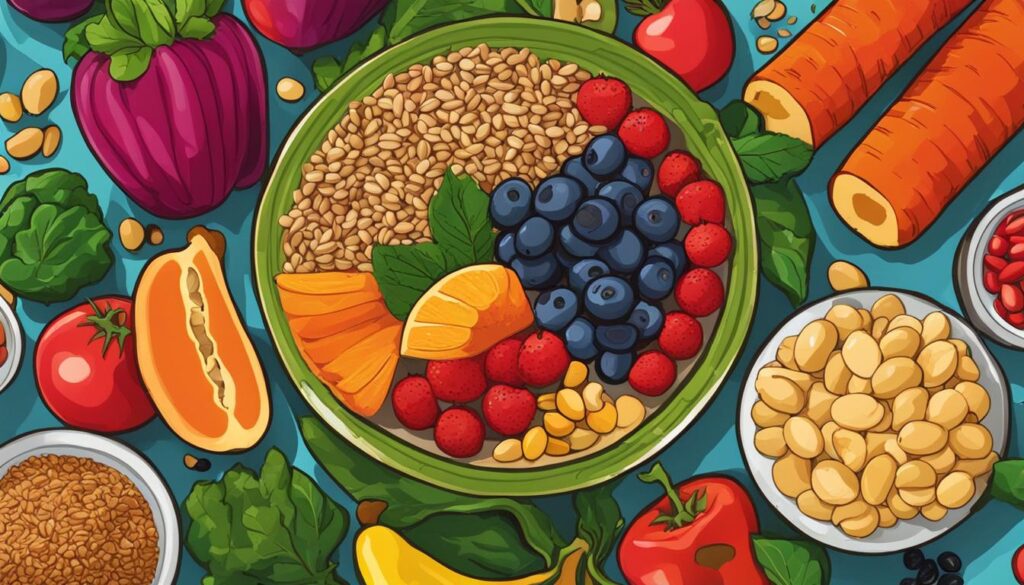
Soluble fiber is a key player in achieving weight loss goals. Its unique properties make it an invaluable tool in your journey towards a healthier body and improved well-being. Let’s explore the numerous benefits that soluble fiber offers in terms of weight loss and how it can help you reach your desired goals.
Feeding Friendly Gut Bacteria
One of the remarkable benefits of soluble fiber is its ability to nourish the friendly gut bacteria in our digestive system. These beneficial bacteria play a crucial role in various aspects of our health, including weight management. Consuming soluble fiber-rich foods provides a source of sustenance for these bacteria, enabling them to thrive and promote a healthy gut environment.
Reducing Inflammation
Inflammation is a common underlying factor in many chronic diseases, including obesity. Soluble fiber has been shown to have anti-inflammatory properties, which can help combat the inflammation associated with weight gain and obesity. By reducing inflammation, soluble fiber contributes to overall health and facilitates the weight loss process.
Slowing Down Digestion and Increasing Fullness
When we consume foods rich in soluble fiber, they form a gel-like substance in the digestive system. This gel slows down digestion, leading to a gradual release of nutrients and a prolonged feeling of fullness. As a result, soluble fiber helps to reduce appetite and prevent overeating, making it easier to adhere to a calorie-controlled diet and achieve weight loss.
“Soluble fiber’s ability to slow down digestion and increase fullness can be a game-changer in your weight loss journey.”
Moreover, soluble fiber has a particularly beneficial effect on targeting belly fat. Visceral fat, which is stored in the abdominal cavity and surrounds vital organs, can increase the risk of various health issues. Studies have shown that soluble fiber has a potent effect in reducing visceral fat, making it an effective tool for achieving a trimmer waistline and improving overall health.
To harness the weight loss benefits of soluble fiber, incorporating fiber-rich foods into your diet is key. Here are some excellent sources of soluble fiber:
| Fiber-Rich Foods |
|---|
| Beans |
| Legumes |
| Flaxseeds |
| Asparagus |
| Brussels Sprouts |
| Oats |
Incorporating these foods into your diet will not only provide you with a good amount of soluble fiber but also offer a range of other essential nutrients that support overall health.
By embracing soluble fiber-rich foods, you can make significant strides towards achieving your weight loss goals. The ability of soluble fiber to feed friendly gut bacteria, reduce inflammation, slow down digestion, increase fullness, and target belly fat makes it an invaluable asset in your weight loss journey.
Fiber Supplements for Weight Loss
While fiber supplements have gained popularity, their efficacy for weight loss remains uncertain. It’s important to understand that most fiber supplements, such as psyllium and guar gum, have shown limited effectiveness in promoting weight loss. The true benefits of fiber for weight management are best obtained through natural, whole plant foods.
Fiber supplements are typically marketed as a convenient way to increase fiber intake without relying solely on dietary sources. However, research suggests that these supplements may not have the same impact on weight loss as fiber-rich foods. Consuming a varied, high-fiber diet that includes fruits, vegetables, legumes, and whole grains provides the greatest health benefits, including weight management.
However, there is one fiber supplement that has shown promise in aiding weight reduction—glucomannan. Glucomannan is a water-soluble fiber derived from the konjac root. Studies have shown that when taken as a supplement, glucomannan can promote feelings of fullness and reduce calorie intake, leading to modest weight loss.
Although glucomannan has demonstrated some potential for weight management, it’s important to note that relying solely on supplements is not the best approach. Instead, focusing on incorporating fiber-rich, whole plant foods into your diet provides a wider range of nutrients and additional health benefits.
“While fiber supplements may have some health benefits, their effectiveness for weight loss is mixed and inconclusive.”
Key Takeaways:
- Fiber supplements may have limited effectiveness for weight loss compared to whole plant foods.
- Psyllium and guar gum are common fiber supplements that have shown limited impact on weight management.
- Glucomannan, derived from the konjac root, has demonstrated potential for weight reduction but should not replace a fiber-rich diet.
- Incorporating a varied, high-fiber diet that includes fruits, vegetables, legumes, and whole grains is the most effective approach for weight loss and overall health.
To illustrate the differences between fiber supplements and whole plant foods, refer to the table below:
| Fiber Sources | Efficacy for Weight Loss | Benefits |
|---|---|---|
| Psyllium and guar gum (fiber supplements) | Ineffective for weight loss | Can provide some relief from constipation |
| Fruits, vegetables, legumes, and whole grains | Effective for weight loss | Provides essential vitamins, minerals, and antioxidants |
In conclusion, while fiber supplements can offer some health benefits, their effectiveness for weight loss is uncertain. When it comes to managing weight, focusing on a fiber-rich diet that includes a variety of whole plant foods is the optimal choice. Remember, achieving long-term weight loss requires a holistic approach that includes regular physical activity and a balanced diet.
Viscous Fiber-Rich Foods for Weight Loss

When it comes to weight loss, incorporating viscous fiber-rich foods into your diet can be highly beneficial. Viscous fibers are exclusively found in plant foods and are known for their ability to promote satiety and aid in weight management. By adding these foods to your meals, you can increase your fiber intake and achieve your weight loss goals more effectively.
- Beans
- Legumes
- Flaxseeds
- Asparagus
- Brussels sprouts
- Oats
These foods are not only rich in viscous fiber but also offer various nutrients that support overall health. By gradually incorporating these viscous fiber-rich foods into your meals, you can enhance feelings of fullness, reduce cravings, and support sustainable weight loss.
| Foods High in Viscous Fiber | Viscous Fiber Content (g) per 100g |
|---|---|
| Beans | 2.2 |
| Legumes | 3.8 |
| Flaxseeds | 27.3 |
| Asparagus | 2.4 |
| Brussels sprouts | 2.6 |
| Oats | 1.7 |
By including these top sources of viscous fiber in your diet, you can take proactive steps towards achieving your weight loss goals. Let these fiber-rich foods become staples in your meals and witness the positive impact they have on your overall health and wellbeing.
Creating a High-Fiber Meal Plan for Weight Loss
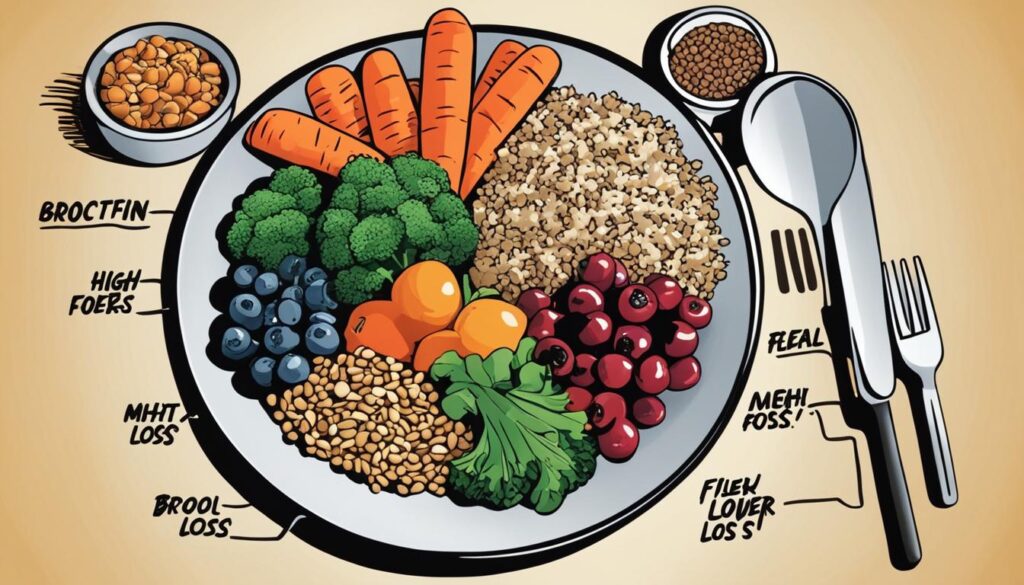
A high-fiber meal plan is an effective tool to support your weight loss goals. By incorporating a variety of fiber-rich foods into your daily diet, you can promote satiety, improve digestion, and manage your weight more effectively. Here’s how you can create a high-fiber meal plan for weight loss:
1. Include a Variety of Fruits and Vegetables
Start by adding a generous amount of fruits and vegetables to your meals and snacks. These nutrient-dense foods are not only rich in fiber but also provide essential vitamins and minerals. Opt for colorful options like berries, leafy greens, and cruciferous vegetables to maximize your fiber intake.
2. Choose Whole Grains
Swap refined grains for whole grains to increase your fiber consumption. Whole grain options such as quinoa, brown rice, and whole wheat bread are high in fiber and provide a steady release of energy throughout the day.
3. Incorporate Legumes
Legumes like lentils, chickpeas, and black beans are excellent sources of fiber and plant-based protein. Including legumes in your meals can enhance both the nutritional value and the fiber content of your diet.
4. Add Nuts and Seeds
Nuts and seeds, such as almonds, chia seeds, and flaxseeds, are packed with fiber and healthy fats. Include them as snacks or use them as toppings in your salads and smoothies to boost your fiber intake and stay satisfied longer.
5. Drink Plenty of Water
When increasing your fiber intake, it’s important to drink enough water to prevent digestive discomfort. Water helps in the digestion and absorption of fiber, allowing it to work effectively in promoting weight loss.
6. Plan and Prepare Your Meals in Advance
Meal-prepping and planning ahead can make it easier to stick to a high-fiber diet. Take the time to plan your meals for the week, ensuring they include a variety of fiber-rich foods. Prepare your meals in advance to have healthy options readily available when hunger strikes.
Remember, gradually increasing your fiber intake is key to avoiding digestive issues. Start by adding small portions of fiber-rich foods to your meals and gradually increase over time. Aim for around 25-30 grams of fiber per day, but listen to your body’s needs and adjust accordingly.
| Fiber-Rich Foods | Fiber Content (per serving) |
|---|---|
| Avocado | 9 grams |
| Black beans | 15 grams |
| Broccoli | 5 grams |
| Chia seeds | 10 grams |
| Quinoa | 5 grams |
| Raspberries | 8 grams |
| Whole wheat bread | 3 grams |
Incorporating these high-fiber foods into your meal plan can help you reach your weight loss goals while keeping you satisfied and nourished. Remember to consult with a healthcare professional or a registered dietitian before making any significant changes to your diet. Create a meal plan that suits your individual needs and preferences, and enjoy the journey towards a healthier, fiber-rich lifestyle.
Tips for Increasing Fiber Intake
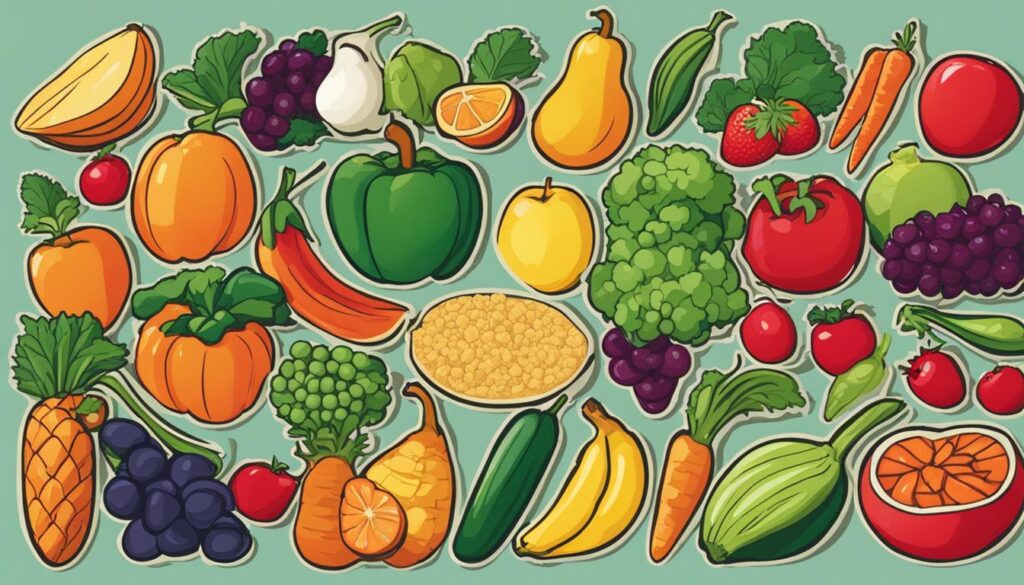
Increasing your fiber intake gradually is key to avoiding digestive discomfort. By incorporating fiber-rich foods into your meals and snacks, you can easily boost your fiber consumption. Here are some tips on how to increase fiber intake for weight loss:
- Add flaxseeds to your smoothies or sprinkle them over yogurt or oatmeal.
- Choose whole-grain bread instead of refined bread for sandwiches or toast.
- Include a variety of fruits and vegetables in your daily meals.
- Snack on nuts and seeds for a fiber-rich treat.
- Opt for whole-grain cereals and pasta instead of their refined counterparts.
- Swap out regular rice for brown rice or quinoa.
Remember, staying hydrated is equally important when increasing fiber intake. Drink plenty of water throughout the day to help the fiber move smoothly through your digestive system.
By following these tips, you can gradually increase your fiber intake and promote weight loss while maintaining a healthy digestive system.
Conclusion
Incorporating dietary fiber-rich foods into your weight loss journey can provide numerous benefits. Soluble fiber plays a crucial role in promoting weight loss by feeding friendly gut bacteria, reducing inflammation, and helping to reduce appetite. It is important to note that fiber supplements may not be as effective for weight loss as whole plant foods.
When it comes to incorporating fiber for weight loss, focusing on whole plant foods is recommended. These foods provide not only fiber but also essential nutrients that can support overall health and well-being. Creating a high-fiber meal plan and gradually increasing fiber intake can help you reach your weight loss goals.
Remember to stay hydrated throughout the process and listen to your body’s needs. Increasing fiber intake should be done gradually to avoid digestive discomfort. By incorporating dietary fiber-rich foods into your weight loss journey, you can achieve a healthier lifestyle and maintain long-term success.



